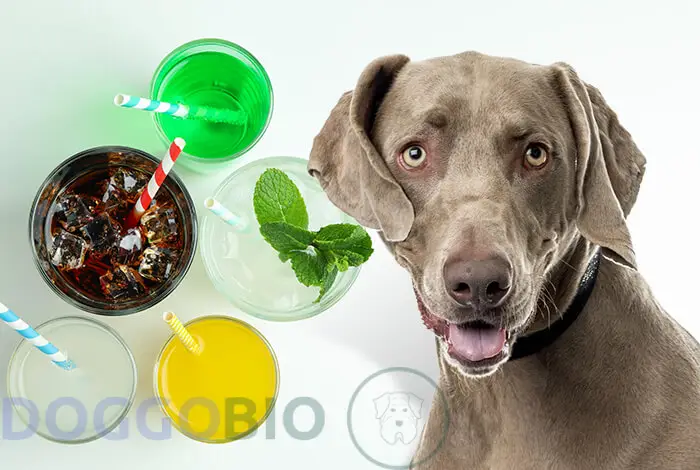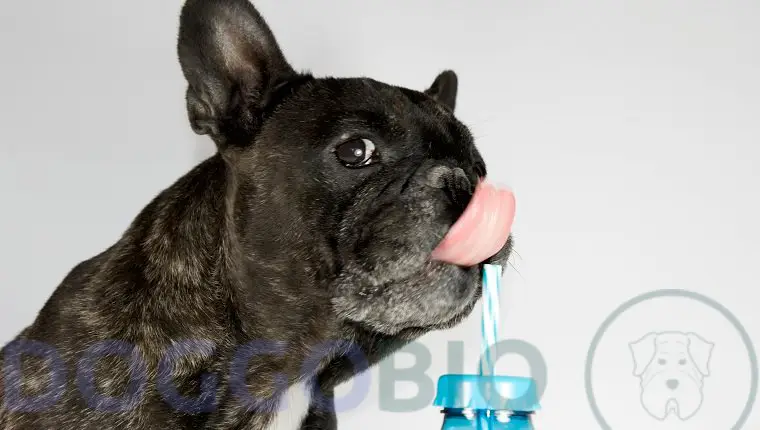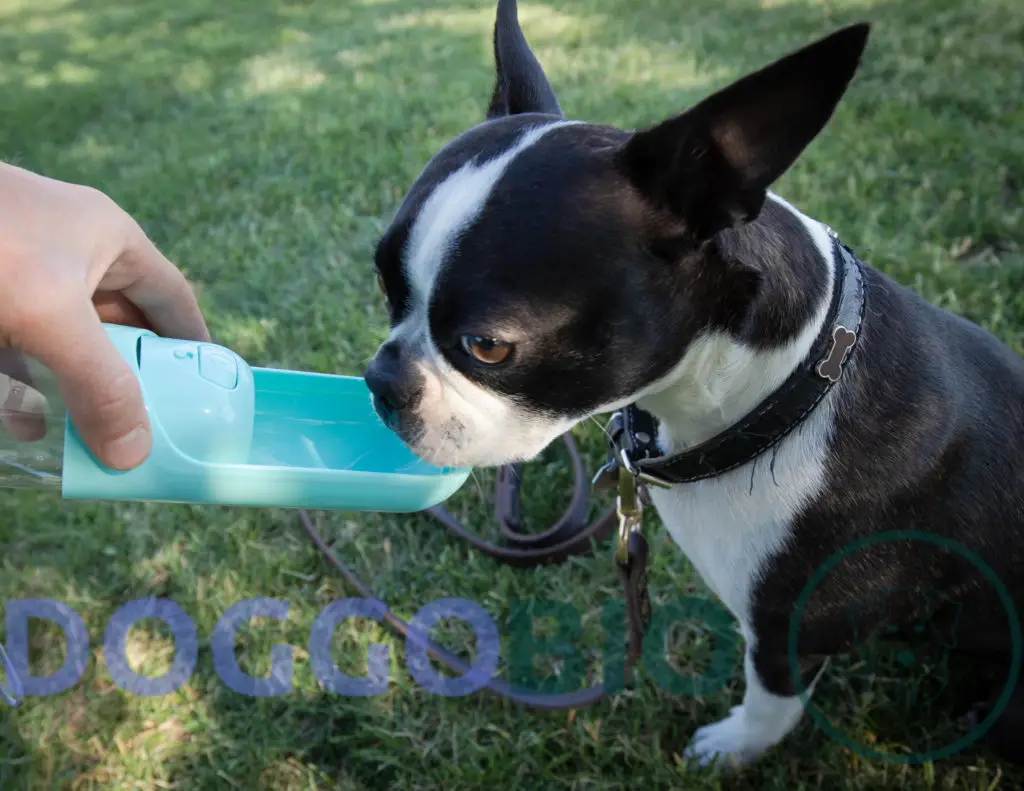When it comes to the health and well-being of our furry companions, it’s crucial to understand what is safe for them to consume.
A common question among dog owners is: “Can dogs drink soda?” The straightforward answer is no, dogs should not drink Soda.
This article delves into why Soda is an inappropriate and potentially harmful beverage for dogs, exploring the various ingredients in Soda that can pose health risks to our canine friends. We will also discuss healthier and safer alternatives to keep your dog hydrated and happy.
Can Dogs Drink Soda?
No, dogs should not drink Soda. Soda contains ingredients harmful to dogs, such as caffeine, high sugar levels, artificial sweeteners, and other additives. These substances can cause health issues in dogs, ranging from minor digestive upset to more severe conditions like caffeine toxicity or diabetes. Even a tiny amount of Soda can harm a dog’s health.

Therefore, pet owners must avoid giving Soda to their dogs and choose healthier, dog-safe alternatives. Sharing human beverages like Soda with dogs might seem harmless, but the potential health risks are significant and should be taken seriously.
The Dangers Of Soda for Dogs
Soda contains high levels of sugar, caffeine, and artificial sweeteners, all of which can harm dogs.

Sugar Overload
Soda is loaded with sugar, which can cause a spike in blood sugar levels in dogs. This can lead to hyperglycemia, where the body produces too much insulin, causing a drop in blood sugar levels.
Symptoms of hyperglycemia in dogs include weakness, lethargy, seizures, and even coma. Additionally, the high sugar content in Soda can also contribute to obesity, diabetes, and dental problems in dogs.
Caffeine Intoxication
Most sodas contain caffeine, which is a stimulant that can have adverse effects on dogs. Dogs are more sensitive to caffeine than humans; even small amounts can cause caffeine intoxication.
Symptoms of caffeine intoxication in dogs include restlessness, rapid breathing, heart palpitations, muscle tremors, and even death in severe cases.
Artificial Sweeteners
Many sodas contain artificial sweeteners such as xylitol, which is highly toxic to dogs. Xylitol can cause a sudden release of insulin in dogs, leading to a dangerous drop in blood sugar levels. It can also cause liver failure, seizures, and even death in dogs.
The Effects of Soda on Dogs
Now that we understand the potential dangers of Soda for dogs, let’s look at how it can affect them if consumed.

Upset Stomach
Soda is highly acidic, irritating a dog’s stomach lining and causing digestive issues such as vomiting, diarrhea, and bloating. It can also lead to discomfort and pain for your furry friend.
Dehydration
The high sugar and caffeine content in Soda can cause dogs to urinate more frequently, leading to dehydration. This can be especially dangerous for small dogs or those with underlying health conditions.
Behavioral Changes
Caffeine is a stimulant that can cause dogs to become hyperactive, restless, and anxious. It can also disrupt their sleep patterns, leading to behavioral changes such as aggression, irritability, and restlessness.
What If My Dog Accidentally Drinks Soda?
If your dog accidentally drinks Soda, monitor them closely for any signs of discomfort or illness. If you notice any concerning symptoms, contact your veterinarian immediately.
How Can I Prevent My Dog From Drinking Soda?
The best way to prevent your dog from drinking soda is to keep it out of reach. Store all beverages in a secure location where your dog cannot access them.
Alternatives To Soda For Dogs
While Soda may seem like a refreshing treat for our canine friends, it’s best to avoid giving it to them altogether. There are plenty of healthier and safer alternatives that you can offer your dog instead.
Water
The best drink for dogs is plain old water. Keeping your dog hydrated is essential, especially during hot weather or after exercise. Always ensure your dog can access fresh, clean water throughout the day.
Bone Broth
Bone broth is a nutritious and delicious alternative to Soda for dogs. It’s rich in vitamins, minerals, and amino acids, making it a healthy addition to your dog’s diet. You can make bone broth at home using chicken, beef, or fish bones.
Coconut Water
Coconut water is a natural source of electrolytes, making it an excellent option for rehydrating your dog after exercise or on a hot day. Just make sure to choose a brand without added sugar or artificial sweeteners.
Some Posts You Wanna Read More
- What Can Dogs Drink Besides Water?
- Can Dogs Drink Tea?
- Can Dogs Drink Apple Juice?
- Can Dogs Drink Ensure?
- Can Dogs Drink Yakult?
- Can Dogs Drink Sparkling Water?
- How Long Can A Dog Go Without Water?
- How long Can A Puppy Go Without Eating Or Drinking?
Frequently Ask Question
Can Dogs Drink Diet Soda?
No, It’s not recommended. Many people believe diet soda is safer for dogs since it doesn’t contain sugar. However, diet sodas still contain artificial sweeteners, which can be toxic to dogs. It’s best to avoid giving your dog any type of Soda, including diet soda.
What About Giving My Dog A Sip Of Soda?
No. Even a tiny sip of Soda can have harmful effects on your dog. It’s best to avoid giving them any amount of Soda, no matter how small.
Conclusion
In conclusion, the question “Can Dogs Drink Soda?” can be definitively answered with a resounding no. Soda contains ingredients that are harmful to dogs, including high levels of sugar, caffeine, and artificial sweeteners like xylitol, which can lead to serious health issues.
As responsible pet owners, it’s essential to prioritize the health and safety of our dogs by avoiding the temptation to share human treats like Soda with them. Instead, we should provide fresh water and dog-safe beverages to ensure their hydration and well-being. Remember, what’s enjoyable for humans isn’t always safe for our canine companions.

Pingback: What Can Dogs Drink Besides Water? Essential Alternative 2024
Pingback: How Long Can A Dog Go Without Water? 2024
Pingback: Can Dogs Drink Yakult? Surprising Benefits & Safety Tips! 2024